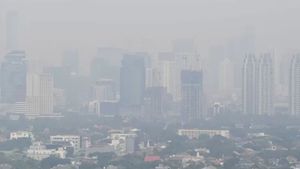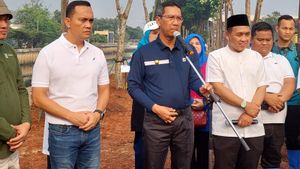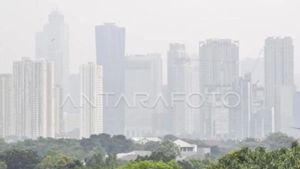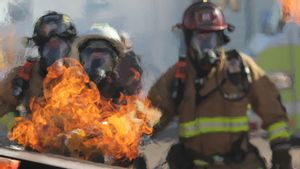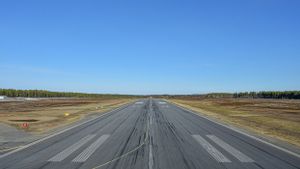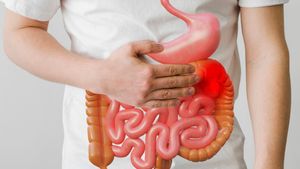JAKARTA - Chairman of the Honorary Council of the Indonesian Lung Doctors Association Prof. Tjandra Yoga Aditama, referring to the study showing a number of possible results of spraying water on the road to prevent air pollution, one of which is a study in China.
According to a study published in the Scientific Journal of 'Toxics' in June 2021, water spraying on a large scale on the road instead of preventing air pollution but instead adding pollution because it tends to increase PM's concentration of 2.5-indicators in air pollution and humidity.
On the other hand, Tjandra mentioned a 2014 Environmental Chemistry Letters volume which mentions geoengineering water spraying or using a technology set for climate intervention in an effort to restore climate change, can efficiently reduce PM 2.5 pollution levels.
"But indeed the 2014 research methodology is not as complete as research in the journal 'Toxic' which is also the newer year, 2021, so we scientifically compare the two," said Tjandra, quoted by ANTARA, Sunday, August 27.
Meanwhile, he continued, a follow-up research report in March 2022 in the scientific journal Proc. ACM Interact. Mob. Wearable Ubiquitous Technol provides a different perspective.
Researchers use the iSpray (Intellegent Spraying)' method which is considered a new software design for better water spraying techniques.
The results of the study show that 'iSpray' with intelligence provides a more efficient spraying method and also has a good impact on the handling of air pollution.
According to Tjandra, India had tried to spray water when the city of New Delhi experienced air pollution. However, this does not provide adequate results, and The Times of India media in November 2020 stated that spraying water may not make people get clean air.
اقرأ أيضا:
Reports reveal that water spraying will be useful only in areas that are building a lot of buildings and causing dust, which if carried away by the wind can cause a lot of dust to fly.
"With some of the explanations above, it must really be analyzed scientifically in what way we will use to overcome air pollution which continues to be bad in these days," concluded Tjandra.
The English, Chinese, Japanese, Arabic, and French versions are automatically generated by the AI. So there may still be inaccuracies in translating, please always see Indonesian as our main language. (system supported by DigitalSiber.id)



